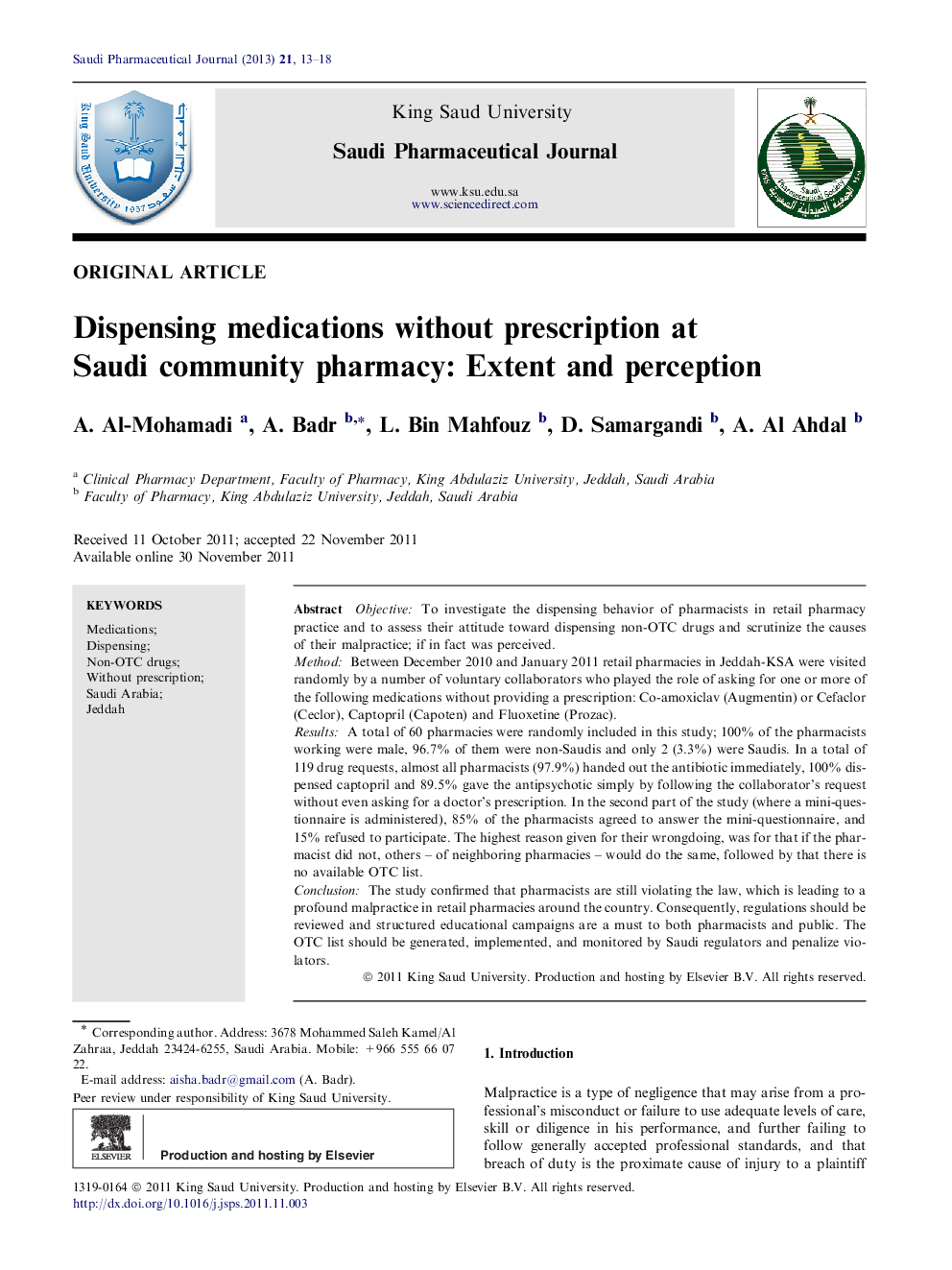| Article ID | Journal | Published Year | Pages | File Type |
|---|---|---|---|---|
| 2509621 | Saudi Pharmaceutical Journal | 2013 | 6 Pages |
ObjectiveTo investigate the dispensing behavior of pharmacists in retail pharmacy practice and to assess their attitude toward dispensing non-OTC drugs and scrutinize the causes of their malpractice; if in fact was perceived.MethodBetween December 2010 and January 2011 retail pharmacies in Jeddah-KSA were visited randomly by a number of voluntary collaborators who played the role of asking for one or more of the following medications without providing a prescription: Co-amoxiclav (Augmentin) or Cefaclor (Ceclor), Captopril (Capoten) and Fluoxetine (Prozac).ResultsA total of 60 pharmacies were randomly included in this study; 100% of the pharmacists working were male, 96.7% of them were non-Saudis and only 2 (3.3%) were Saudis. In a total of 119 drug requests, almost all pharmacists (97.9%) handed out the antibiotic immediately, 100% dispensed captopril and 89.5% gave the antipsychotic simply by following the collaborator’s request without even asking for a doctor’s prescription. In the second part of the study (where a mini-questionnaire is administered), 85% of the pharmacists agreed to answer the mini-questionnaire, and 15% refused to participate. The highest reason given for their wrongdoing, was for that if the pharmacist did not, others – of neighboring pharmacies – would do the same, followed by that there is no available OTC list.ConclusionThe study confirmed that pharmacists are still violating the law, which is leading to a profound malpractice in retail pharmacies around the country. Consequently, regulations should be reviewed and structured educational campaigns are a must to both pharmacists and public. The OTC list should be generated, implemented, and monitored by Saudi regulators and penalize violators.
